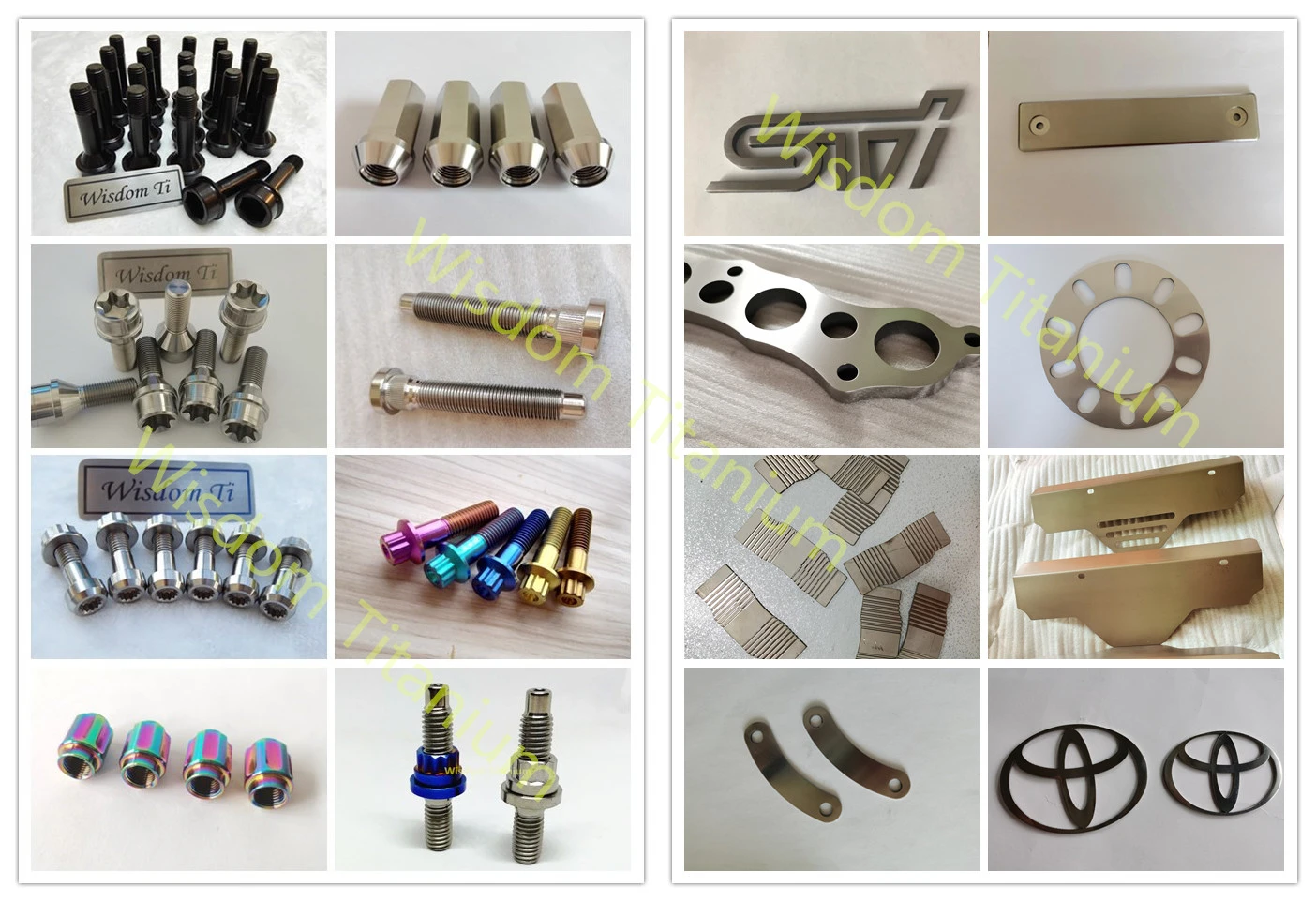
The use of titanium in car parts has been gaining momentum in recent years, and for good reason. Titanium offers a host of advantages over traditional materials like steel, making it a superior choice in many automotive applications. In this blog, we'll explore the key reasons why titanium car parts are considered superior to steel, delving into aspects such as weight, strength, durability, and corrosion resistance. Additionally, we'll address three key questions: How does the weight of titanium compare to steel in car parts? What are the benefits of titanium's corrosion resistance in automotive applications? And why is titanium preferred in high-performance car manufacturing?
How Does the Weight of Titanium Compare to Steel in Car Parts?
Weight is a critical factor in the automotive industry, impacting everything from fuel efficiency to vehicle performance. One of the primary advantages of titanium over steel is its significantly lower density. Titanium is about 45% lighter than steel, which translates into substantial weight savings when used in car components (Modo Rapid) (Unity Manufacture).
Impact on Fuel Efficiency and Performance
The reduction in weight provided by titanium parts leads to improved fuel efficiency. Lighter vehicles require less energy to accelerate and maintain speed, which directly translates to better gas mileage. This is particularly important in the context of increasing fuel economy standards and the push towards more environmentally friendly vehicles.
Moreover, the lower weight of titanium enhances vehicle performance. In racing and high-performance cars, reducing weight can lead to better acceleration, handling, and braking. This is why titanium is often used in critical performance components such as exhaust systems, engine parts, and suspension systems (Flying Precision).
Comparison with Steel
While steel is known for its high strength, its higher density means that parts made from steel are heavier. This additional weight can be a disadvantage in applications where performance and efficiency are paramount. By contrast, titanium provides a much better strength-to-weight ratio, offering comparable strength at a fraction of the weight (Unity Manufacture).
What Are the Benefits of Titanium's Corrosion Resistance in Automotive Applications?
Corrosion resistance is another area where titanium outshines steel. Steel, even when alloyed with elements like chromium to form stainless steel, is still susceptible to rust and corrosion over time, especially when exposed to harsh environments. Titanium, however, naturally forms a protective oxide layer that makes it highly resistant to corrosion.
Long-Term Durability
The exceptional corrosion resistance of titanium extends the lifespan of car parts, reducing the need for frequent replacements and maintenance. This is particularly beneficial for components exposed to the elements, such as exhaust systems, undercarriages, and any part in contact with road salts or chemicals (Flying Precision) (millautoparts.com).
Cost Savings
Although titanium is more expensive upfront, its longevity and durability can lead to cost savings over the lifetime of a vehicle. Fewer replacements and less maintenance mean that, in the long run, titanium parts can be more cost-effective than steel parts, which may require more frequent servicing and replacement due to corrosion damage (Modo Rapid).
Why Is Titanium Preferred in High-Performance Car Manufacturing?
Titanium's unique properties make it especially suited for high-performance car manufacturing. Its combination of light weight, high strength, and excellent corrosion resistance provides several benefits in the design and production of high-performance vehicles.
Enhanced Engine Efficiency
Titanium's heat resistance and low thermal expansion make it ideal for engine components. Titanium can withstand the high temperatures and stresses found in high-performance engines without deforming or losing strength. This stability helps maintain engine efficiency and performance over time (Flying Precision).
Improved Safety and Reliability
High-performance vehicles demand materials that can endure extreme conditions. Titanium’s durability ensures that critical components remain intact and functional even under the most strenuous conditions. This reliability is crucial for both the safety and performance of high-performance cars (Unity Manufacture).
Innovations in Manufacturing
Recent advancements in manufacturing techniques, such as 3D printing and advanced welding methods, have made it easier and more cost-effective to produce titanium parts. These innovations allow for more complex and precise designs, further enhancing the performance benefits of titanium in automotive applications (millautoparts.com).
Conclusion
In summary, titanium car parts offer several advantages over steel, making them superior for many automotive applications. The significant weight reduction provided by titanium improves fuel efficiency and vehicle performance. Its excellent corrosion resistance leads to greater durability and lower maintenance costs. Moreover, titanium's unique properties are particularly beneficial in high-performance car manufacturing, where its strength, heat resistance, and reliability can be fully leveraged. As automotive technology continues to advance, the use of titanium is likely to become even more widespread, providing ongoing improvements in vehicle performance and efficiency.
References
Modo Rapid. (n.d.). Titanium vs Steel Differences Pros and Cons. Retrieved from www.modorapid.com.
Unity Manufacture. (n.d.). Titanium Vs. Steel: Strength, Weight, And Applications. Retrieved from www.unitymanufacture.com.
Flying Precision. (n.d.). The Benefits Of Titanium In Automotive Industry. Retrieved from www.flyingprecision.com.
Mill Auto Parts. (n.d.). Titanium: An Overview of its Uses in Vehicle Manufacturing. Retrieved from www.millautoparts.com.





